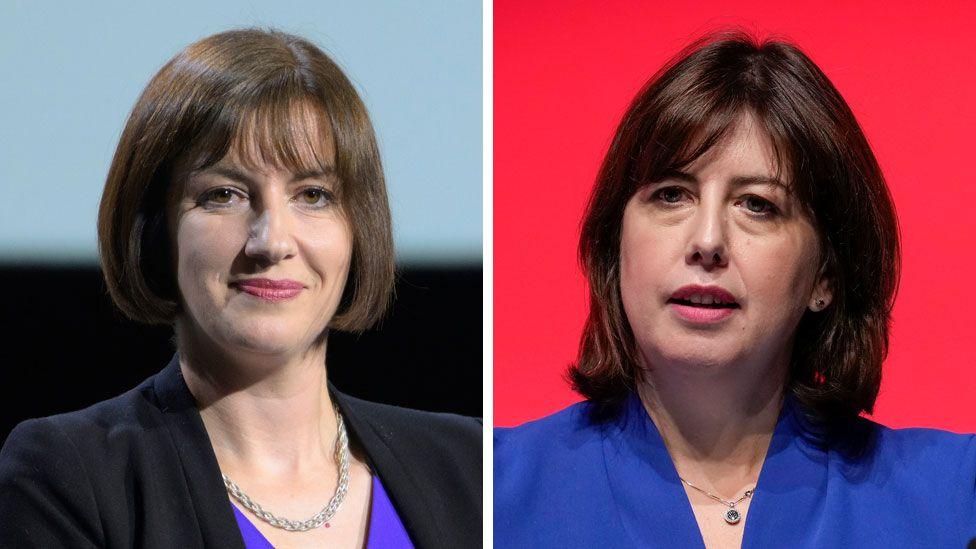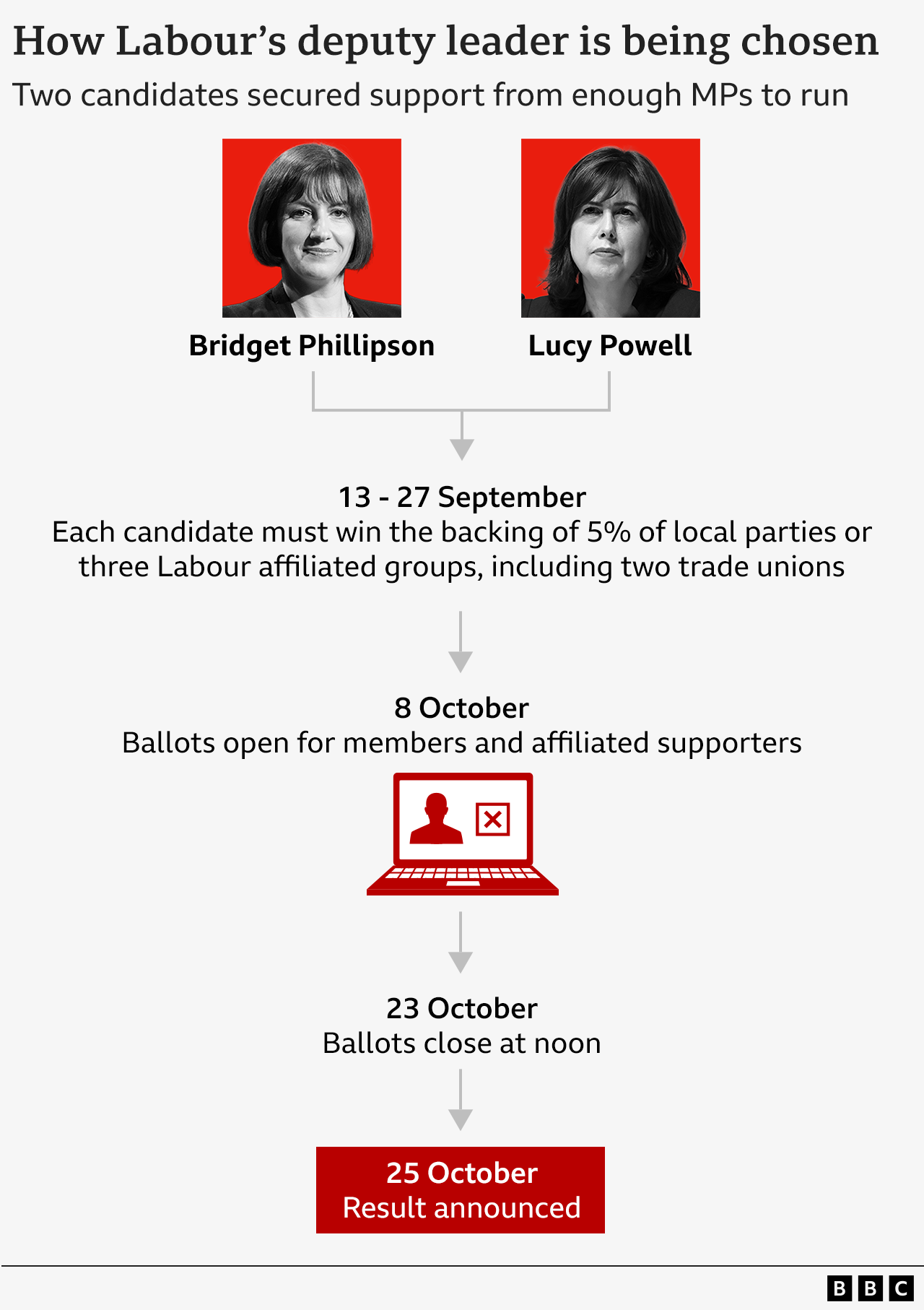Phillipson and Powell set for Labour deputy showdown

- Published
Education Secretary Bridget Phillipson and former Commons leader Lucy Powell are set for a showdown for Labour's deputy leadership, after the only other remaining candidate failed to get enough support.
Left-wing backbencher Bell Riberio-Addy said she had not secured the 80 MP nominations needed by 17:00 BST on Thursday to progress.
Phillipson, meanwhile, has secured 175 votes, while Powell has 117.
In the next stage, the contenders have to win the backing of 5% of local parties or three Labour-affiliated groups, such as a trade union, to go through to a ballot of members.
'Being deputy Labour leader is a ghastly job'
- Published10 September
Rayner's replacement will show which way political wind is blowing in Labour
- Published9 September
"I want to unite our party and our movement, deliver the change our country needs and beat Reform," Phillipson said in a video posted on social media following Thursday evening's deadline.
"Now is the time to come together so we can unite to win again."
Powell, meanwhile, has vowed to act as a "bridge for all parts" of the party.
"At a time when there are forces trying to spread division and hatred, Labour must be the voice of unity and hope," she said in a statement.
The contest was triggered by the resignation of Angela Rayner, after she failed to pay enough tax on her £800,000 flat in Hove.
The winner of the contest will not become deputy prime minister, as Rayner was, because that position has been handed to Justice Secretary David Lammy.
Posting on social media after nominations closed on Thursday, Ribeiro-Addy said: "Unfortunately, I have not secured the high number of nominations required to proceed in the deputy leadership contest.
"I am disappointed that the full range of Labour members' views will not be represented on the ballot paper."
The position of deputy leader is a potentially powerful one, as a link between the Labour membership and the party leadership - and whoever wins will be at the forefront of Labour election campaigns.
Crucially, they cannot be sacked by the party leader, Sir Keir Starmer, as they will have their own mandate.
Voting for the next deputy leader is likely to open for Labour members on 8 October and close on 23 October, with the winner being announced two days later.
The remaining candidates will have an opportunity to woo Labour members at hustings during the party's conference in Liverpool at the end of September.
The contest opens up chances for unhappy MPs and party members to express their discontent with the leadership, potentially overshadowing the big ministerial speeches.
Phillipson - the only cabinet member left in the race - emerged as the early frontrunner after attracting support from MPs who are loyal to the government.
But party members may prefer a candidate who is prepared to challenge Sir Keir, potentially harming Phillipson's chances.
Powell - who was recently sacked from her cabinet role in a ministerial reshuffle - may attract the support of Labour MPs dissatisfied with the performance of Sir Keir's government and its policies.
Many senior Labour figures have said the next leader should be a woman and from outside London to counter what they see as the London-centric and male-dominated party leadership.
